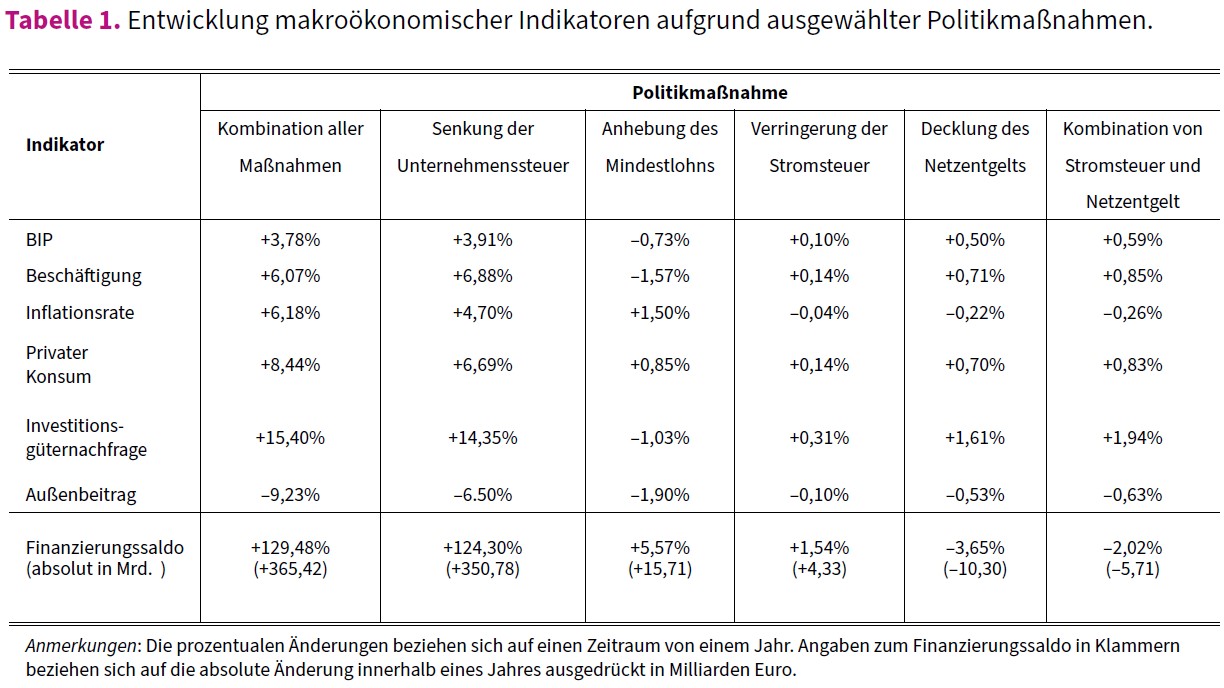
Germany’s 2025 federal elections:
The upcoming general election is taking place in the midst of one of the most serious crises in the German economy for decades. The political parties have recognized the economic situation and promise to set appropriate priorities in economic policy for the period after the general election. Interestingly, however, their election manifestos are largely silent on the question of how relief measures should be financed. The Hamburg Institute of International Economics (HWWI) takes a closer look at this question in this position paper in order to contribute to the discussion on a possible reform of the debt brake.
It examines the short-term effects of primarily supply-side policy measures on macroeconomic indicators such as gross domestic product, employment and the inflation rate as well as the government’s financial balance.
It is shown that a combination of a corporate tax cut, an increase in the minimum wage, a reduction in the electricity tax and a cap on the grid fee for electricity could lead to a strong economic upturn, but also to an increase in the financing deficit of around 130% or 365 billion euros. A combination of electricity tax reduction and grid fee cap would be more suitable, which would only imply a moderately positive overall economic development, but could achieve a reduction of 2% or EUR 5.71 billion in the financing deficit. The risk of serious financing deficits must be urgently taken into account when planning the upcoming economic policy.

Press Contact

Contact

PD Dr. Stephen Sacht
